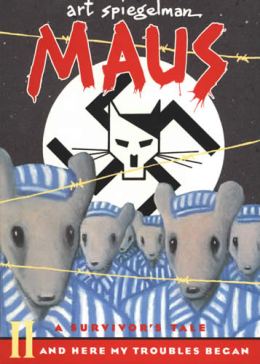
The two volumes of Art Spiegelman’s Maus: A Survivor’s Tale, published in book form in 1986 and ’91, defy classification. The remarkable work has a rightful place on our list of top 10 graphic novels; TIME’s Lev Grossman has noted that Maus’ Pulitzer was “a landmark event in the history of the medium — its sheer power forced the mainstream world to take comics seriously.” Yet Maus — in which the artist-author not only tells the true story of his father Vladek, a Holocaust survivor, but also conveys the complicated relationship between father and son — can just as rightly lay claim to being among the best memoirs ever written. Spiegelman draws the Jews as mice, the Nazis as cats and the Poles as pigs, all the while drawing the reader closer to the truth. As Grossman wrote, “the cartoonish conceit doesn’t trivialize the story; it makes it viscerally real — it strips away our practiced indifference to an all-too-familiar story. Those mice are more human than most people.”
